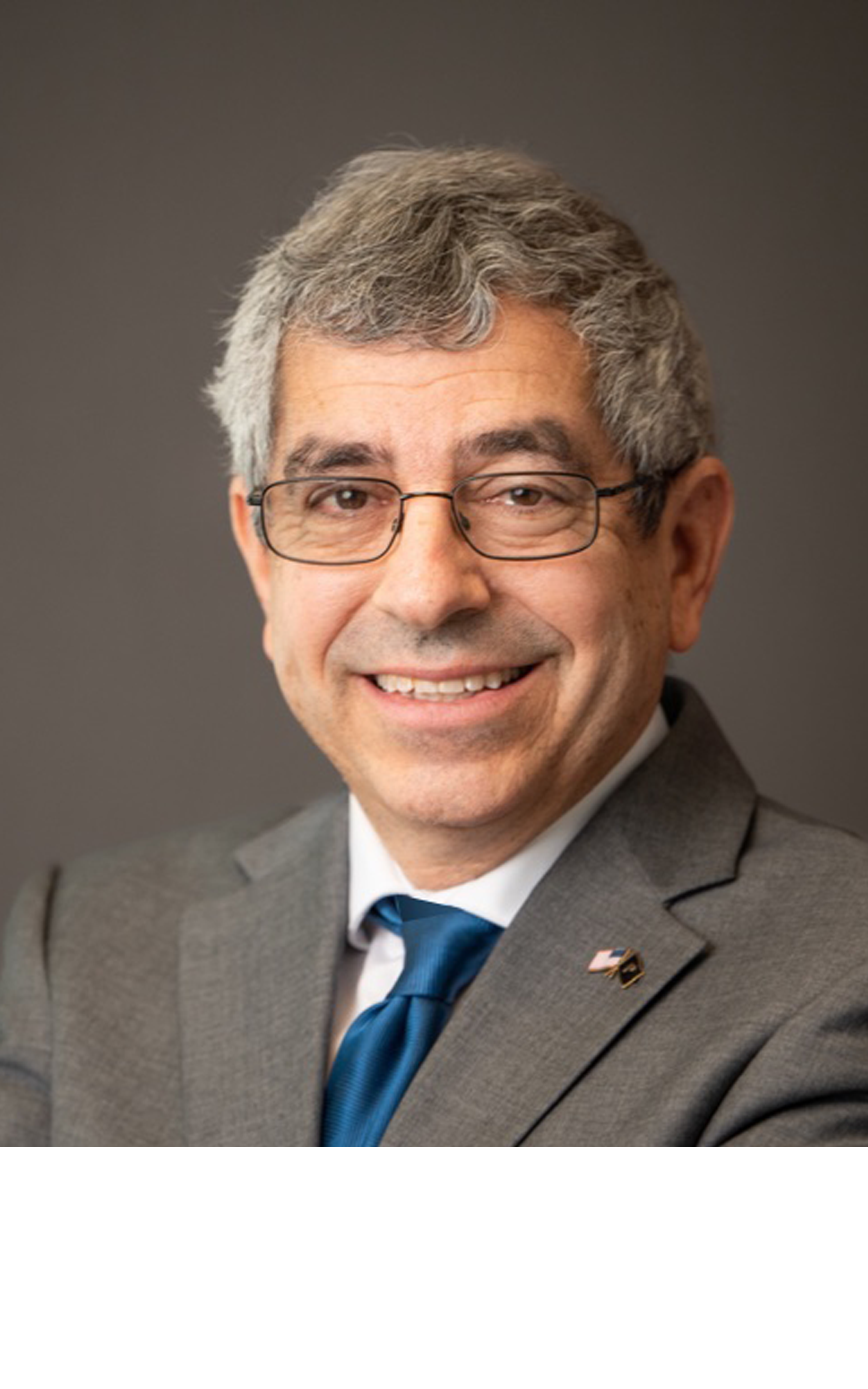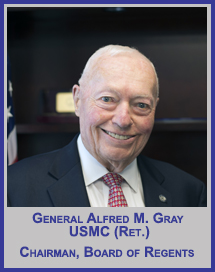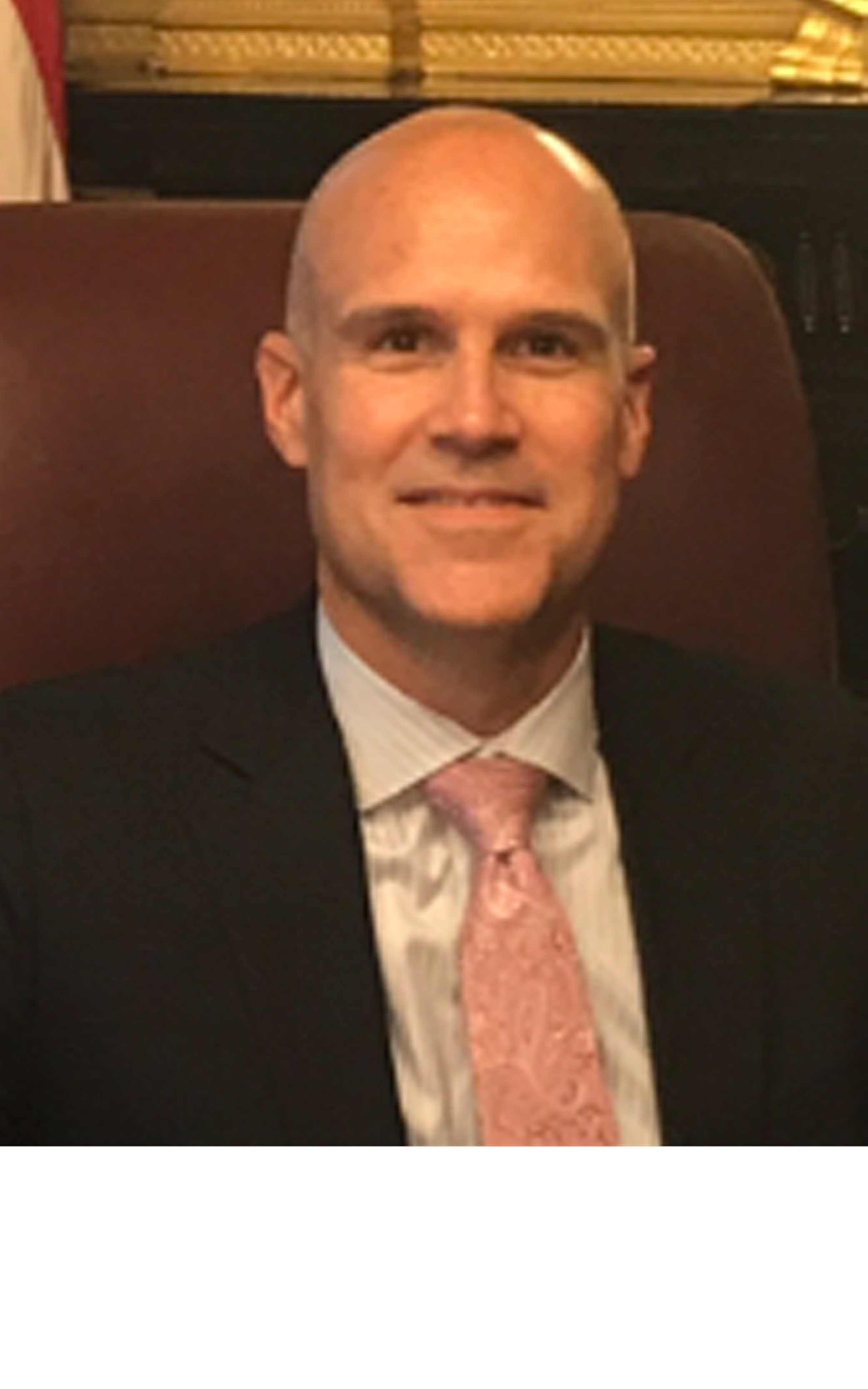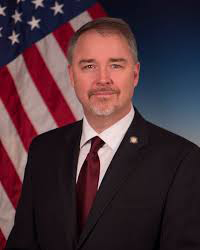Staff
Staff
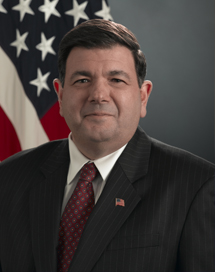 The Honorable Zachary J. Lemnios is a Senior Executive with over 40 years of experience in industry, government and academia, who has led the development and application of advanced technologies for national and global security. He served as Vice President of Research Strategy and Worldwide Operations, Vice President of Physical Sciences, and Vice President of Government Programs, globally across IBM Research.
The Honorable Zachary J. Lemnios is a Senior Executive with over 40 years of experience in industry, government and academia, who has led the development and application of advanced technologies for national and global security. He served as Vice President of Research Strategy and Worldwide Operations, Vice President of Physical Sciences, and Vice President of Government Programs, globally across IBM Research.
Prior to joining IBM, Mr. Lemnios served three terms in high level civilian leadership in the Department of Defense with detailed and extended interactions across the whole of US government and with leaders across US allied nations. Mr. Lemnios was confirmed as The Honorable Assistant Secretary of Defense (Research & Engineering) by the United States Senate. In this position, Mr. Lemnios was the Chief Technology Officer for Department of Defense and shaped the Department’s technical strategy to support the President’s national security objectives and the Secretary’s priorities. He launched Department and international initiatives in large data analytics, decision support, engineering education, electronic warfare, cyber, autonomy, advanced propulsion, hypersonics, and directed energy concepts as future capabilities for the nation. Mr. Lemnios received special recognition from the Australian Government Department of Defence and was awarded Office of Secretary of Defense Medal for Exceptional Public Service and the Office of Secretary of Defense Medal for Outstanding Public Service.
Lemnios also served as the first Chief Technology Officer of MIT Lincoln Laboratory. He has authored over 40 papers, holds 4 patents in advanced GaAs device and MMIC technology and is a Life Fellow of the IEEE.
 Doug Wolfe is a member of the Board of Regents and Senior Fellow. Mr. Doug Wolfe has been Member of Government Advisory Board at TransUnion since August 2018. A recognized federal government leader, Mr. Wolfe served 33 years with the CIA and was its Associate Deputy Director of Science and Technology. He retired from federal service in December 2017 and today he oversees operations at BlackLynx, which specializes in high-performance analytics and computing. He served as Chief Information Officer (CIO) at the CIA from 2013 to 2016, in charge of Agency Information Technology (IT) vision and strategic direction, along with advising the Intelligence Community (IC). Throughout his career, he served multiple CIA positions, among them were Deputy Director for Acquisition, Technology, and Facilities at the Office of the Director of National Intelligence (ODNI); Deputy Director of the Office of Global Access (OGA) and Program Manager overseeing the end-to-end system acquisition of an innovative new source and method for the Intelligence Community. He holds a bachelor's degree in mechanical engineering from the University of Southern California, and a master's degree in system engineering from Virginia Tech.
Doug Wolfe is a member of the Board of Regents and Senior Fellow. Mr. Doug Wolfe has been Member of Government Advisory Board at TransUnion since August 2018. A recognized federal government leader, Mr. Wolfe served 33 years with the CIA and was its Associate Deputy Director of Science and Technology. He retired from federal service in December 2017 and today he oversees operations at BlackLynx, which specializes in high-performance analytics and computing. He served as Chief Information Officer (CIO) at the CIA from 2013 to 2016, in charge of Agency Information Technology (IT) vision and strategic direction, along with advising the Intelligence Community (IC). Throughout his career, he served multiple CIA positions, among them were Deputy Director for Acquisition, Technology, and Facilities at the Office of the Director of National Intelligence (ODNI); Deputy Director of the Office of Global Access (OGA) and Program Manager overseeing the end-to-end system acquisition of an innovative new source and method for the Intelligence Community. He holds a bachelor's degree in mechanical engineering from the University of Southern California, and a master's degree in system engineering from Virginia Tech.
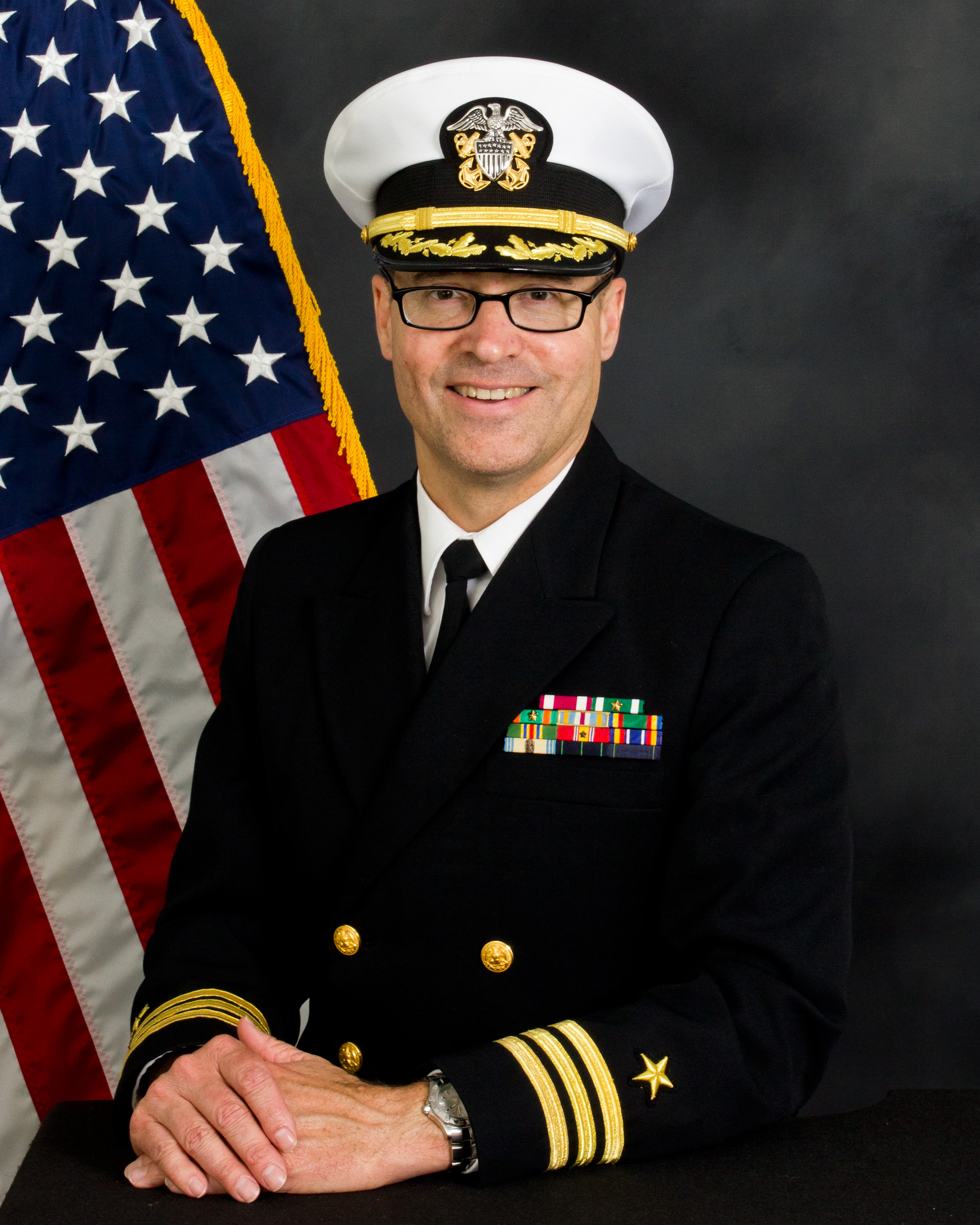 Mr Conley’s career focus has been in the areas of weapons and energetic materials development, weapons employment, and intelligence. He has lead groups that made significant strides in warhead development, weaponeering tools, collateral damage estimations, and battle damage assessment techniques. He has also built organizations to support highly classified programs for the Intelligence Community.
Mr Conley’s career focus has been in the areas of weapons and energetic materials development, weapons employment, and intelligence. He has lead groups that made significant strides in warhead development, weaponeering tools, collateral damage estimations, and battle damage assessment techniques. He has also built organizations to support highly classified programs for the Intelligence Community.
His 25-year career in the Navy Reserve enabled him to act as a liaison between the Fleet and Navy labs. As a fully qualified Engineering Duty Officer, he had assignments at NSWC White Oak, Navy Research Laboratory, SSP Headquarters, and NSWC Indian Head. As a Scientific & Technical Intelligence Liaison Officer (STILO), he facilitated relationships between the Navy and Intelligence Community. He earned a DAWAII Level III SPRDE certification in 2003.
Mr. Conley has taught in the Mechanical Engineering Department at the USNA since 2009. He has taught classes in thermodynamics, propulsion and modern weapon design.
Mr. Conley earned a B.Sc. and M.S. from University of Michigan and graduated from the Naval War College. His areas of expertise include: Weapons Acquisition, Weapon Development, S&T support to IC, Energy Conversion, Lethality and Vulnerability, Weaponeering, Collateral Damage M&S, and Energetic Materials.
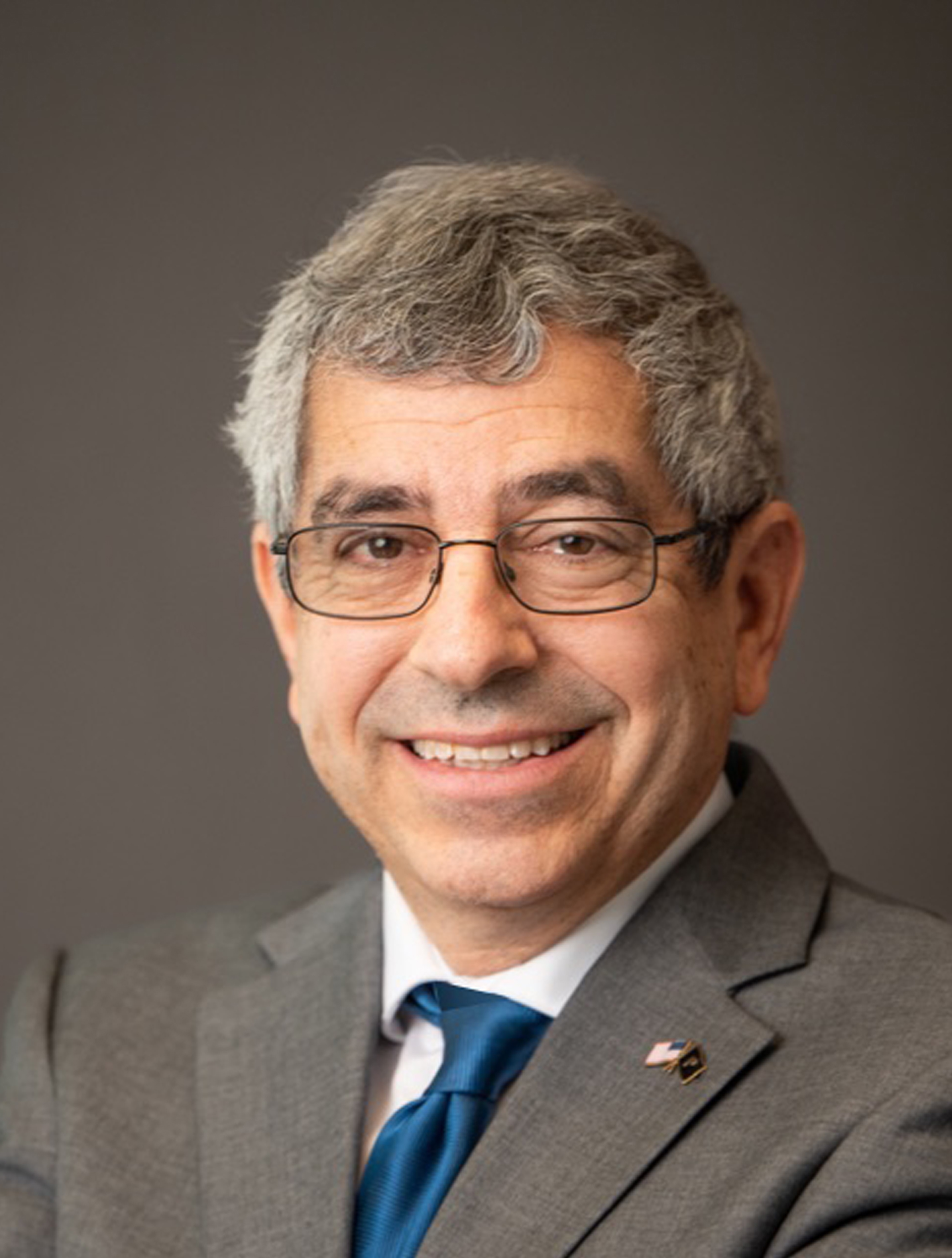 Mark Lewis, Ph.D., member, Board of Regets
Mark Lewis, Ph.D., member, Board of Regets
Dr. Mark Lewis is the Chief Executive Officer for the Purdue Applied Research Institute providing thought leadership and domain expertise across PARI’s national security, global development, infrastructure research, and technology acceleration initiatives to take on our nation’s most challenging problems. With a focus on creating new strategic private-public-academic partnerships, Dr. Lewis connects PARI programs with a broad array of industry, federal agencies, entrepreneurs, and academic collaborators. Previously Dr. Lewis’s distinguished career includes leadership as Executive Director of NDIA’s Emerging Technologies Institute, Director of Defense Research & Engineering in the Department of Defense, Chief Scientist of the U.S. Air Force, acting Deputy Under Secretary of Defense for Research & Engineering, Director of the Science and Technology Policy Institute, and professor emeritus at the University of Maryland, where he served as the Willis Young, Jr., Professor and Chair of the Department of Aerospace Engineering.
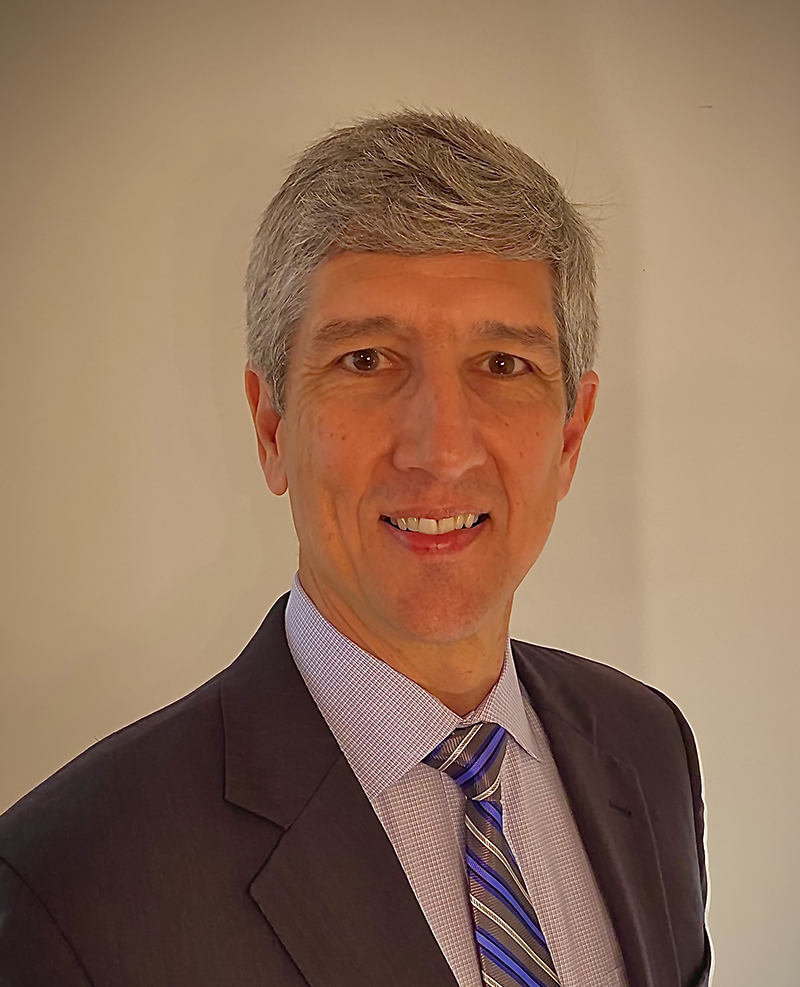 Jay is a native of Waco, Texas, and he served 36 years in the Navy retiring in 2021 as the Assistant Deputy Chief of Naval Operations for Warfighting Development (OPNAV N7B). His other tours in the DC area included Director, Assessments for Navy (OPNAV N81); Deputy Director, White House Military Office; military legislative assistant and fellow on the staff of U.S. Sen. John S. McCain (R-AZ) and senior programmer/analyst for Navy & intelligence, surveillance and reconnaissance programs while attached to the Office of the Secretary of Defense (DASD Readiness).
Jay is a native of Waco, Texas, and he served 36 years in the Navy retiring in 2021 as the Assistant Deputy Chief of Naval Operations for Warfighting Development (OPNAV N7B). His other tours in the DC area included Director, Assessments for Navy (OPNAV N81); Deputy Director, White House Military Office; military legislative assistant and fellow on the staff of U.S. Sen. John S. McCain (R-AZ) and senior programmer/analyst for Navy & intelligence, surveillance and reconnaissance programs while attached to the Office of the Secretary of Defense (DASD Readiness).
His sea commands included an FA-18 Super Hornet Squadron, an Aircraft Carrier Air Wing, and a Carrier Strike Group. Jay was also the 34th Chief of Naval Air Training.
Since retiring, RADM Bynum founded a consulting firm, where he provides insight and support to the leadership of several commercial companies.
Jay holds a Bachelor of Arts in Database Management from the University of Oklahoma and is a Georgetown University Capitol Hill Fellow. He is a graduate of the Armed Forces Staff College and the U.S. Air Force Air Command and Staff College. Jay has Service credentials in financial management and strategy, and received Executive Education from Harvard Kennedy School, Kenan-Flagler Business School at UNC, as well as the Naval Post Graduate School.
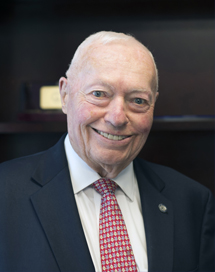 General Al Gray, USMC (Ret) serves as Chairman of the Board of Regents; Member of the Board of Directors; and Senior Fellow of the Potomac Institute of Policy Studies (PIPS). The PIPS serves as a non-partisan, not-for-profit policy research institute that provides an academic forum for the study of key national security, science and technology, and related policy issues. In addition to participating in monthly seminars related to the global terrorism challenge, he oversees the Center for Emerging Threats and Opportunities (CETO), which operates as a futuristic think tank for the Marine Corps at Quantico.
General Al Gray, USMC (Ret) serves as Chairman of the Board of Regents; Member of the Board of Directors; and Senior Fellow of the Potomac Institute of Policy Studies (PIPS). The PIPS serves as a non-partisan, not-for-profit policy research institute that provides an academic forum for the study of key national security, science and technology, and related policy issues. In addition to participating in monthly seminars related to the global terrorism challenge, he oversees the Center for Emerging Threats and Opportunities (CETO), which operates as a futuristic think tank for the Marine Corps at Quantico.
General Gray has served as Board Chairman and CEO for several public and private companies and has consulted to United States and international industry and government. General Gray’s other duties have included service on the Defense Science Board; the Defense Special Operations Advisory Group; the National Security Agency Science Advisory Board; the National Reconnaissance Office Gold Team; the Defense Operations Support Office Advisory Team; and as Director of the Advanced Concept Demonstration Technology for Combat in the Littorals. Consistent with his interest in education and helping servicemen and women, he is trustee Emeritus of Norwich University, past trustee on Monmouth University, past member of the National Defense University Board of Visitors and is Chairman Emeritus of American Military University. He is Chairman Emeritus of The Injured Marine Semper Fi Fund and the America Fund, having served over ten years, to help take care of wounded veterans and their families.
General Gray currently serves as Chancellor of The Marine Military Academy, Chairman of the US Marine Youth Foundation, Board of Trustee Chairman at the American Public University System, and Senior Mentor to the Defense Science Study Group.
In 1991, Al Gray retired after 41 years of service to the United States Marine Corps. From 1987-1991, General Gray served as a member of the Joint Chiefs of Staff, was the 29th Commandant of the Marine Corps, and was advisor to both Presidents Reagan and George H. W. Bush. As Commandant, he instituted and published a Warfighting Philosophy for Marines based on the Maneuver Warfare Thought Process. General Gray developed and implemented a new long-range strategic planning process for the Marine Corps, established the Marine Corps University, and implemented other longstanding changes, such as ensuring that every Marine is a rifleman first and that the Marine Corps was Special Operations Capable.
General Gray enlisted in the Marine Corps in 1950 and achieved the rank of Sergeant while serving in amphibious reconnaissance with Fleet Marine Force, Pacific aboard the submarine USS Perch (ASSP-313). He was commissioned a Second Lieutenant in 1952. In the early years, he held extensive assignments overseas in the Far East and Southeast Asia in infantry, artillery, intelligence, communications and special operations. He has held every infantry command assignment from platoon commander through Division Commander and has commanded every Marine Air Ground Task Force from Marine Corps Expeditionary Unit to Marine Expedition Force.
Among his awards are two Defense Distinguished Service Medals, two Navy Distinguished Service Medals, Distinguished Service Medals from the US Army, the US Air Force and the US Coast Guard, the Silver Star Medal, two Legion of Merits with Combat "V", four Bronze Star Medals with Combat "V", three Purple Hearts, three Joint Commendation Medals, the Meritorious Service Medal, the Navy Commendation Medal, the Vietnamese Cross of Gallantry with Palm and Star, as well as foreign awards from Argentina, Brazil, Chile, Columbia, Korea and The Netherlands.
General Gray holds a B.S. from the University of the State of New York. He also attended Lafayette College, the Marine Corps Command and Staff College and the Army War College. General Gray is the recipient of two honorary Doctor of Law degrees, one from Lafayette College and the other from Monmouth University, and was awarded a Doctor of Military Science from Norwich University. He was the first awardee of an Honorary Doctorate of Strategic Intelligence from the Defense Intelligence College (now the Joint Military Intelligence College), was awarded an Honorary Doctorate for Leadership from the Franklin University, an Honorary Doctorate for Public Service from the American Public University System, and an Honorary Doctorate of Warfare Studies from the Marine Corps University.
In 2008, General Gray was inducted into the National Security Agency Hall of Honor for rendering distinguished service to American Cryptology.
 Mr. Overman retired from Northrop Grumman Electronic Systems as VP & GM of the Systems Development & Technology Division which was the focal point for emerging programs, mission/system concepts, discriminating technologies and profitable growth of a multibillion-dollar Sector. Responsibilities included: research, development, test and reduction to practice of systems deployed from underseas to deep space. In this organization value focused world class teams created, pursued, won and successfully executed programs bridging concept to capability growing the top line while generating current year profits.
Mr. Overman retired from Northrop Grumman Electronic Systems as VP & GM of the Systems Development & Technology Division which was the focal point for emerging programs, mission/system concepts, discriminating technologies and profitable growth of a multibillion-dollar Sector. Responsibilities included: research, development, test and reduction to practice of systems deployed from underseas to deep space. In this organization value focused world class teams created, pursued, won and successfully executed programs bridging concept to capability growing the top line while generating current year profits.
The organization’s success was process based and sparked by distributed, empowered leadership. A record number of Vice Presidents and Presidents graduated from the group. Kelly has stated: “It’s all about people and teams. Once objectives are wider than your shoulders you must have a team. Successful teams couple a common vision with empowered, distributed leadership. The difference between a leader and a driver is less than a foot. A driver builds a fire under butts, a leader builds a fire in many a belly. The key is a clear contagious vision and people who have something they want to do more than something they want to be.”
Focus areas included:
Missions: Space, Air, Land, Surface, Undersea & Cyber with systems, assets & weapons employed to secure offensive, defensive and intelligence functions.
Commercial spin offs: Law Enforcement, Commercial Security Systems & Electric/Hybrid automotive propulsion (R&D 100 Award).
Technology: EW, RADAR, EO, CNI, SIGINT, IW/IO, Cyber, Chem-Bio, Power, Vision/Telepresence, Collaboration, Materials/ICs.
Mr. Overman represented Westinghouse on AIA. His team participation includes: the USAF Advisory Board Study on Asymmetric Warfare (9-11), the National Security Forum of the Air War College, National Laboratory Reviews, the Secretary of the Air Force Special Advisory Group and the OSD DSB Study 21st Century Military Operations in a Complex Electromagnetic Environment.
He has authored articles and presentations on signal processing, situation estimation theory, fusion, quantum impacts/opportunities, information defined - HW & SW enabled systems, mission information superiority, lateral thinking, value growth business strategy, characteristics of successful entrepreneurial organizations, teams and leadership. He is an active contributor to business strategy, advanced programs, future missions, systems, techniques and technology.
Mr. Overman holds a BSEE from the University of Arkansas and a MSEE from the University of Pittsburgh. Executive studies include the Center for Creative Leadership, the Brookings Institution and Harvard Business School. He is a member of: Tau Beta Pi, Pi Mu Epsilon; Eta Kappa Nu, the University of Arkansas Academy of Electrical Engineering and the Association of Old Crows. He holds an FAA Pilot License, a USCG Captain License, as well as multiple patents and awards for presentations/papers. In free time, Mr. Overman loves sailing, racing and classic sports car touring with his wife and soul mate BJ, another engineer.
Josh Mendelsohn is a Senior Fellow at the Potomac Institute for Policy Studies, specializing Policy Making and Technology. Prior to working with the Potomac Institute, Mr. Mendelsohn has had a career as a technology investor, entrepreneur, and strategist has extended from Washington to Silicon Valley to New York City. For nearly two decades, he has played a leading role in the emerging public tech sector as well as a prominent advocate founding and leading a range of organizations at the intersection of tech and government. In 2016 and 2020, he was part of the senior leadership team that advised Mike Bloomberg on a potential Presidential run and continues to serve as a senior technology and innovation advisor to Bloomberg LP leadership.
Mr. Mendelsohn is also the founder and Managing Partner of Hangar, a New York City firm building public-sector focused products and services from the ground up. Prior to Hangar, he was a co-founder of Hattery, which prior to a 2013 sale to Google, invested in early-stage startups, using a full-time team of design, engineering, operations, and finance experts to help accelerate the growth of portfolio companies. While at Hattery, Mr. Mendelsohn was part of a group of startup founders and investors who formed Engine, an organization focused on bringing policymakers and high-tech, high-growth technology startups together. Prior to Hattery and Engine, he held several operating roles across the portfolio of Sequoia Capital. Mr. Mendelsohn started his Silicon Valley career as PM at Google for four years where in his 20% time he created the Google Disaster Response Program, now part of Google.org, as well as the @Google Talks program.
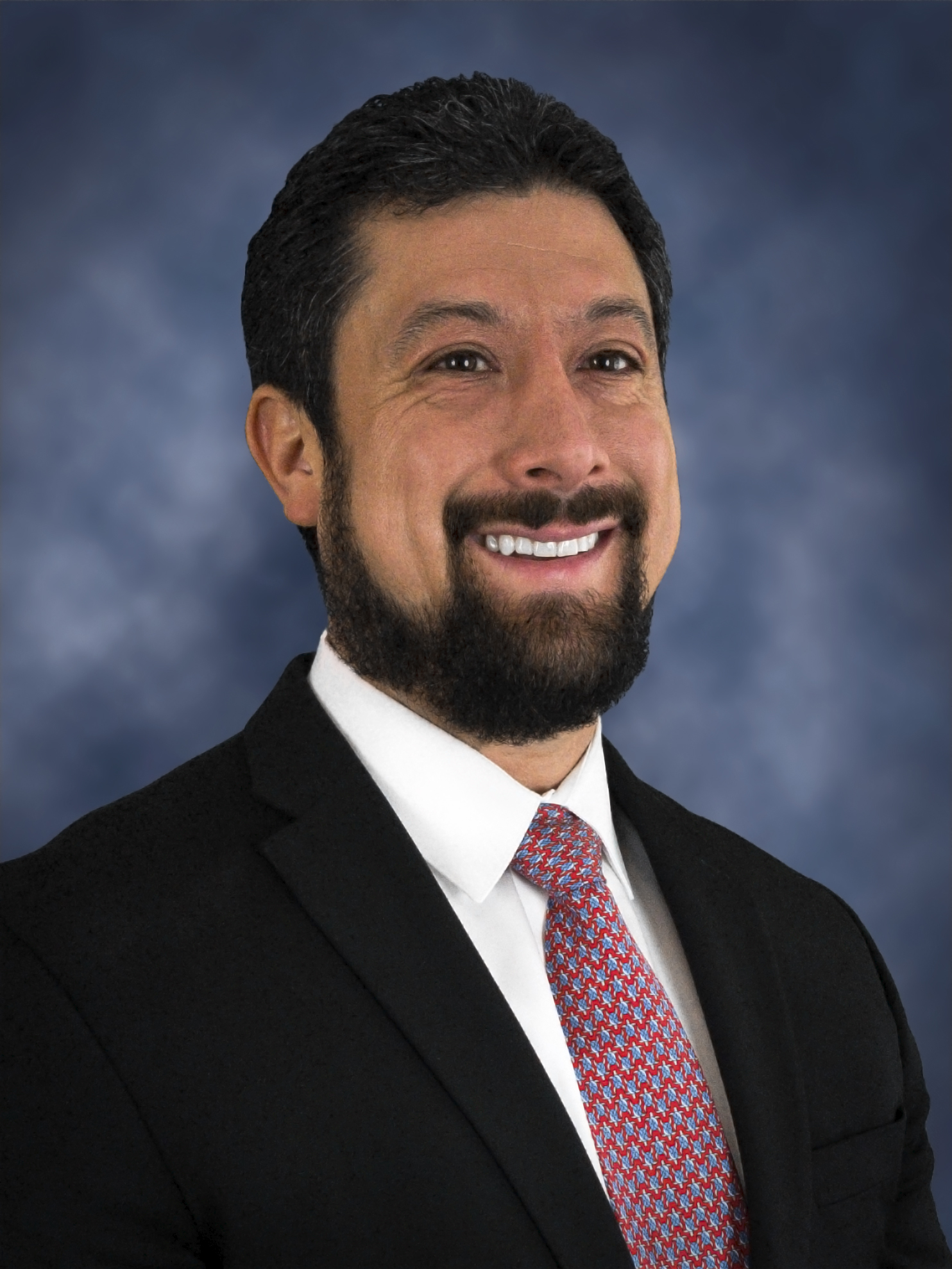 Daniel Marrujo is currently the President and Managing Director of Trusted Strategic Solutions, a leading Silicon Valley based consulting and government relations firm. He is on the Board of Advisors for Akhan Semiconductor, BMNT and Integra Technologies. He is on the Board of Directors for Nantero and a member of the Presidents Council of Advisors for California Polytechnic State University. He is currently a critical member of the Defense Microelectronics Cross Functional Team (DMCFT). Prior to this Mr. Marrujo served over 10 years as a senior civilian in the US Government. His final assignment was the Chief Strategy Officer and Director of the Office of Research and Technology Applications (ORTA) at the Defense Microelectronics Activity (DMEA). The Defense Microelectronics Activity serves as a joint resource for the Department of Defense, US Government Agencies, Industry and Foreign Allies on all microelectronic efforts.
Daniel Marrujo is currently the President and Managing Director of Trusted Strategic Solutions, a leading Silicon Valley based consulting and government relations firm. He is on the Board of Advisors for Akhan Semiconductor, BMNT and Integra Technologies. He is on the Board of Directors for Nantero and a member of the Presidents Council of Advisors for California Polytechnic State University. He is currently a critical member of the Defense Microelectronics Cross Functional Team (DMCFT). Prior to this Mr. Marrujo served over 10 years as a senior civilian in the US Government. His final assignment was the Chief Strategy Officer and Director of the Office of Research and Technology Applications (ORTA) at the Defense Microelectronics Activity (DMEA). The Defense Microelectronics Activity serves as a joint resource for the Department of Defense, US Government Agencies, Industry and Foreign Allies on all microelectronic efforts.
Mr. Marrujo established the NRO's VS&E program which executed several solutions protecting National Security though key technology evaluations. During his role as a U.S. Government civilian he focused on many Microelectronics initiatives that impacted the US at the Pentagon, Congress and the White House. Mr. Marrujo was also responsible for the Trust accreditation of multiple billion dollar companies within the Trusted Supplier Network. Many of these companies manufacture secure electronics currently deployed in U.S. weapons systems. Mr. Marrujo was also responsible for the establishment of the network of over 75 industry, FFRDC and USG engagements within the National High Reliability Electronics Virtual Center (HiREV). Mr. Marrujo served on the Mission Executive Council for Microelectronics, the OSD Advanced Electronics Community of Interest and supported the National Academy of Sciences on numerous microelectronics studies. Mr. Marrujo has supported over 10 DARPA programs as a subject matter expert.
Before embarking on his government civilian career, Mr. Marrujo developed missile guidance systems for advanced programs at Raytheon Missile Systems in Tucson, Arizona.
Outside of microelectronics, Mr. Marrujo co-founded Trusted American Insurance Agency. This insurance company has grown into all 50 states with over 6,000 insurance agents nationwide. Mr. Marrujo currently sits on the Board of Directors for Trusted American Insurance Agency.
He holds a master’s degree in Materials Engineering and a bachelor’s degree in Electrical Engineering from the California Polytechnic State University, San Luis Obispo, CA.
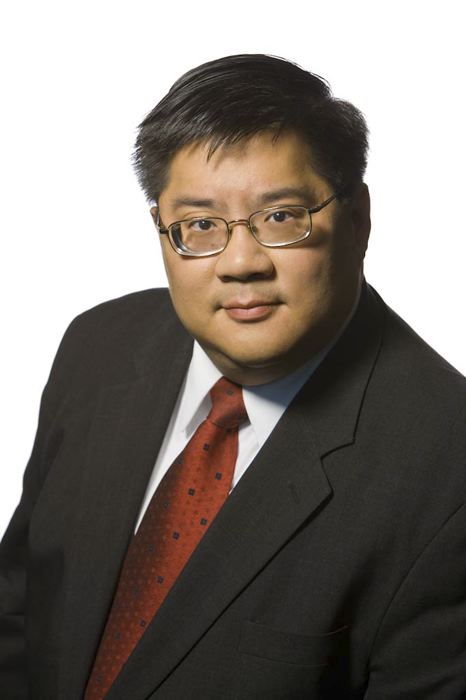 Dean Cheng currently a Senior Fellow at the Potomac Institute for Policy Studies, specializing in the US relationship with China. Prior to being with the Potomac institute, he recently retired as the Senior Research Fellow for Chinese Political and Military Affairs at the Heritage Foundation. He is fluent in Chinese, and uses Chinese language materials regularly in his work. Previously, he worked with the China Studies Division (previously, Project Asia) at the Center for Naval Analysis, a Federally Funded Research and Development Center, where he specialized in Chinese military issues, with a focus on Chinese military doctrine and Chinese space capabilities. Before that, he worked for Science Applications International Corporation (SAIC), and as an analyst with the US Congress’ Office of Technology Assessment in the International Security and Space Division.
Dean Cheng currently a Senior Fellow at the Potomac Institute for Policy Studies, specializing in the US relationship with China. Prior to being with the Potomac institute, he recently retired as the Senior Research Fellow for Chinese Political and Military Affairs at the Heritage Foundation. He is fluent in Chinese, and uses Chinese language materials regularly in his work. Previously, he worked with the China Studies Division (previously, Project Asia) at the Center for Naval Analysis, a Federally Funded Research and Development Center, where he specialized in Chinese military issues, with a focus on Chinese military doctrine and Chinese space capabilities. Before that, he worked for Science Applications International Corporation (SAIC), and as an analyst with the US Congress’ Office of Technology Assessment in the International Security and Space Division.
His published work includes the volume Cyber Dragon: Inside China’s Information Warfare and Cyber Operations (Praeger Publishing, 2016). He has testified before Congress, and spoken at the National Space Symposium, the US National Defense University, the USSTRATCOM Deterrence Symposium, Harvard, and MIT. He has appeared frequently in print and broadcast media to discuss Chinese space and military activities.
 Tania Elliott, MD, FAAAAI, FACAAI, is an expert in telemedicine and digital health, leveraging connected care technologies to bring care to patients, wherever they are. Passionate about the quadruple aim, she creates solutions to improve quality, efficiencies, access, and patient and care team experiences.
Tania Elliott, MD, FAAAAI, FACAAI, is an expert in telemedicine and digital health, leveraging connected care technologies to bring care to patients, wherever they are. Passionate about the quadruple aim, she creates solutions to improve quality, efficiencies, access, and patient and care team experiences.
She is currently Chief Medical Officer of Virtual Care for one of the nation’s integrated delivery networks, advancing adoption hybrid care and remote patient monitoring across the care continuum.
Previously, she served as a clinical solutions medical director at a Fortune 5 healthcare company supporting the development of telemedicine reimbursement policy and digitally enabled women’s health and cardiovascular programs to improve patient engagement and reduce medical costs. She has cared for thousands of patients through synchronous video visits, and has trained physician’s across the country on how to effectively practice via telehealth, including developing best practice standards, continuing medical education, and graduate medical education programs in virtual care.
Dual board certified in Internal Medicine and Allergy and Clinical Immunology, Dr. Elliott has published in multiple peer reviewed journals on the use of telemedicine and digital technologies in healthcare. In 2019, she was named Medical Marketing and Media's (MM+M) Top 40 Healthcare Transformers.
She currently chairs the Telemedicine and Technology Taskforce for The American American College of Allergy Asthma and Immunology, and is a mentor for Stanford University's Masters in Clinical Informatics Management Program.
She is a graduate of Jefferson Medical College, completed her residency at Mount Sinai Medical Center in New York, and Fellowship at NYU Langone Hospital Long Island. She holds a BA in Biology from Haverford College.
 Sarah Mineiro is the CEO of Tanagra Enterprises, a defense, intelligence, space, science and technology consulting firm based in the national capital region. Sarah has worked within the national security and defense sector for decades. Over her career Sarah has worked in venture capital backed private industry, the Executive, and Legislative branches of government.
Sarah Mineiro is the CEO of Tanagra Enterprises, a defense, intelligence, space, science and technology consulting firm based in the national capital region. Sarah has worked within the national security and defense sector for decades. Over her career Sarah has worked in venture capital backed private industry, the Executive, and Legislative branches of government.
Previously, Sarah was the Senior Director of Space Strategy for Anduril Industries, a hypergrowth VC-backed defense unicorn specializing in AI/ML enabled defense technologies. Sarah was responsible for developing the company’s space strategy, aligning internal company resources to product development, and business development.
Sarah was the Staff Lead for the Strategic Forces Subcommittee for the House Armed Service Committee (HASC). She led the Subcommittee’s legislative and oversight activities of all Department of Defense and Military Intelligence Program space programs, U.S. nuclear weapons, missile defense, directed energy, and hypersonic systems. Sarah was the senior legislative advisor to Chairman Mac Thornberry on all strategic forces issues. In this role she was the primary drafter and negotiator of the Space Force and Space Command legislation for the House Republicans.
Prior to joining the HASC, Sarah served in the Office of the Under Secretary of Defense for Policy (OSDP) , the Office of the Under Secretary of the Air Force for International Affairs (SAF/IA) and she started her career as an intelligence analyst for the National Air and Space Intelligence Center in Dayton, Ohio. She was the lead employment analyst on foreign counterspace systems including space situational awareness sensors, directed energy, and kinetic kill vehicle systems.
Sarah is a board member of the Space Force Association and National Defense University Foundation. Sarah has been awarded Secretary of Defense Medal for Exceptional Civil Service. She is an Executive Mentor with the Zed Factor fellowship, a newly established non-profit seeking to increase participation of underrepresented communities, including women of color and LGBTQ+ individuals, in the space ecosystem.
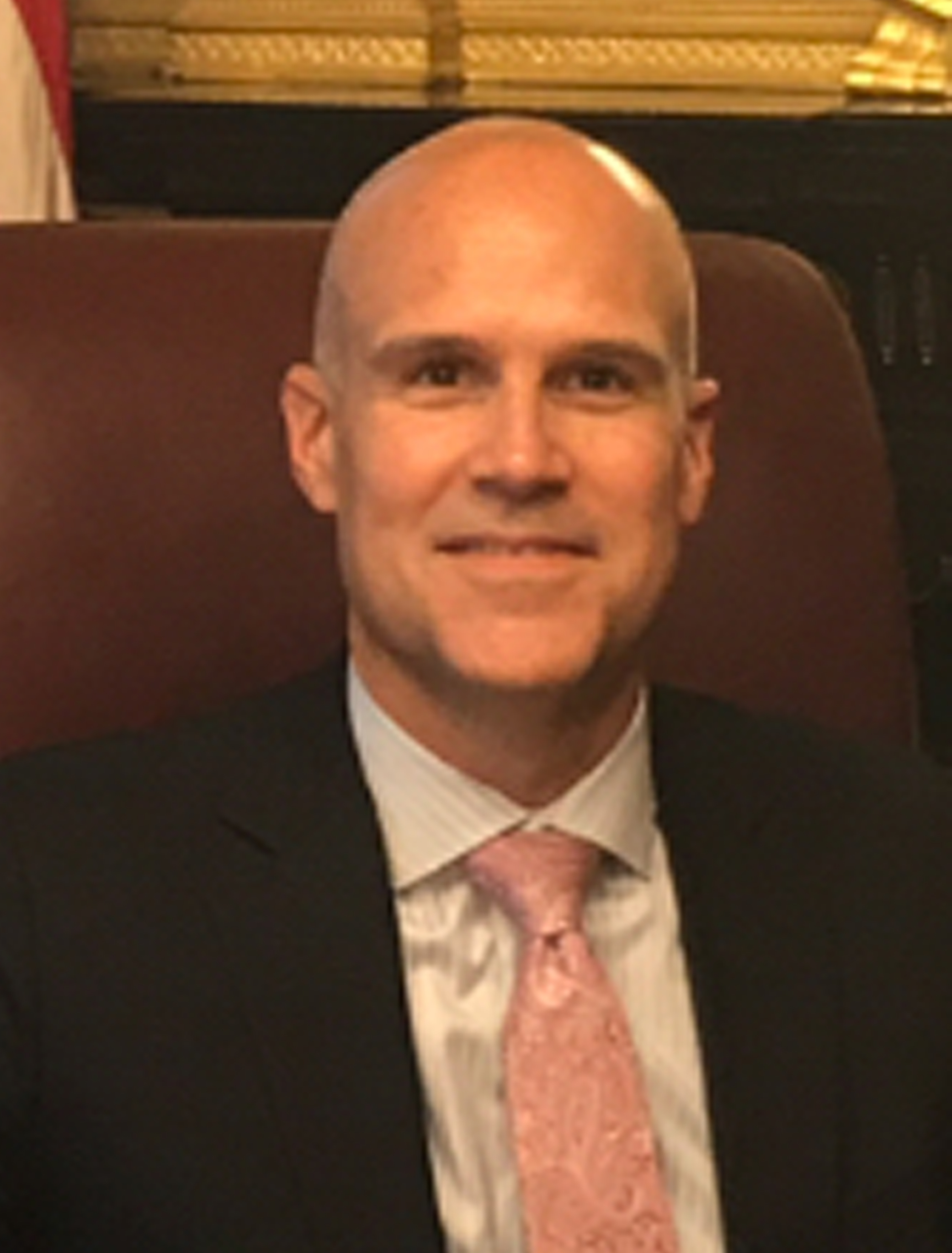 Having worked in the private sector, the military, and on Capitol Hill, Tim Welter brings valuable experience in national security and defense policy to the Institute. After serving on active duty in the Air Force for several years, he worked on Capitol Hill as Legislative Director for two different Members of Congress and later as a Professional Staff Member with the House Veterans Affairs Committee. Upon leaving the Hill, Tim worked with the foreign and defense policy research team at the American Enterprise Institute. He later completed a research fellowship at the National War College during which he finished his Ph.D. dissertation in Political Science with the University of Missouri, writing about the political nature of defense policy in Congress. A U.S. Air Force Academy graduate, Tim holds Master’s degrees in Political Science, National Security Strategy, and Management. Just prior to joining the Institute, Tim served at the Pentagon where he helped stand up an organization dedicated to future force design and the development of capabilities and concepts required to meet to emerging national security challenges.
Having worked in the private sector, the military, and on Capitol Hill, Tim Welter brings valuable experience in national security and defense policy to the Institute. After serving on active duty in the Air Force for several years, he worked on Capitol Hill as Legislative Director for two different Members of Congress and later as a Professional Staff Member with the House Veterans Affairs Committee. Upon leaving the Hill, Tim worked with the foreign and defense policy research team at the American Enterprise Institute. He later completed a research fellowship at the National War College during which he finished his Ph.D. dissertation in Political Science with the University of Missouri, writing about the political nature of defense policy in Congress. A U.S. Air Force Academy graduate, Tim holds Master’s degrees in Political Science, National Security Strategy, and Management. Just prior to joining the Institute, Tim served at the Pentagon where he helped stand up an organization dedicated to future force design and the development of capabilities and concepts required to meet to emerging national security challenges.

After 14 years in industry and 18 years in government,
I founded Escape Velocity, a boutique national security advisory firm. I am all about the mission, and my current mission is to marshal my extensive and diverse industry and government experience on behalf of innovators and patriots.
In 2018, at the request of the Director of National Intelligence, JP founded and served as the first-ever U.S. Intelligence Community Space Executive. The Space Executive is the principal space policy advisor to the Director of National Intelligence and also serves as the National Intelligence Manager (NIM) for space related threats to national security.
Previously, JP served as Special Advisor for Space, Cyber, Intelligence, Weapons of Mass Destruction, and Science and Technology to the Vice President of the United States. In addition to representing the Vice President on national security matters addressed by the National Security Council, JP had leadership roles in reestablishing the National Space Council, drafting the National Strategy for Space, and helping update the national cybersecurity strategy for the U.S.
Prior to the White House appointment, JP was the founding Technical Director of the Intelligence Community Security Coordination Center, which was created to coordinate the cyber defense of the 17 agencies comprising the U.S. Intelligence Community, and which is one of seven Presidentially designated Federal Cybersecurity Centers.
Other experience:
- Information Technology: CIO acquisition and source selection responsibilities for the adoption of the Intelligence Community cloud infrastructure;
- Innovation Management: 14 years in industry managing advanced research and development for the most innovative organization in the world, DARPA;
- Legislative and Oversight: Professional Staff Member on the House Armed Services Committee and Analyst for the U.S. General Accountability Office (GAO)
- Graduate of Arizona State University and the Claremont Graduate University, with coursework at Harvard Business and Kennedy Schools
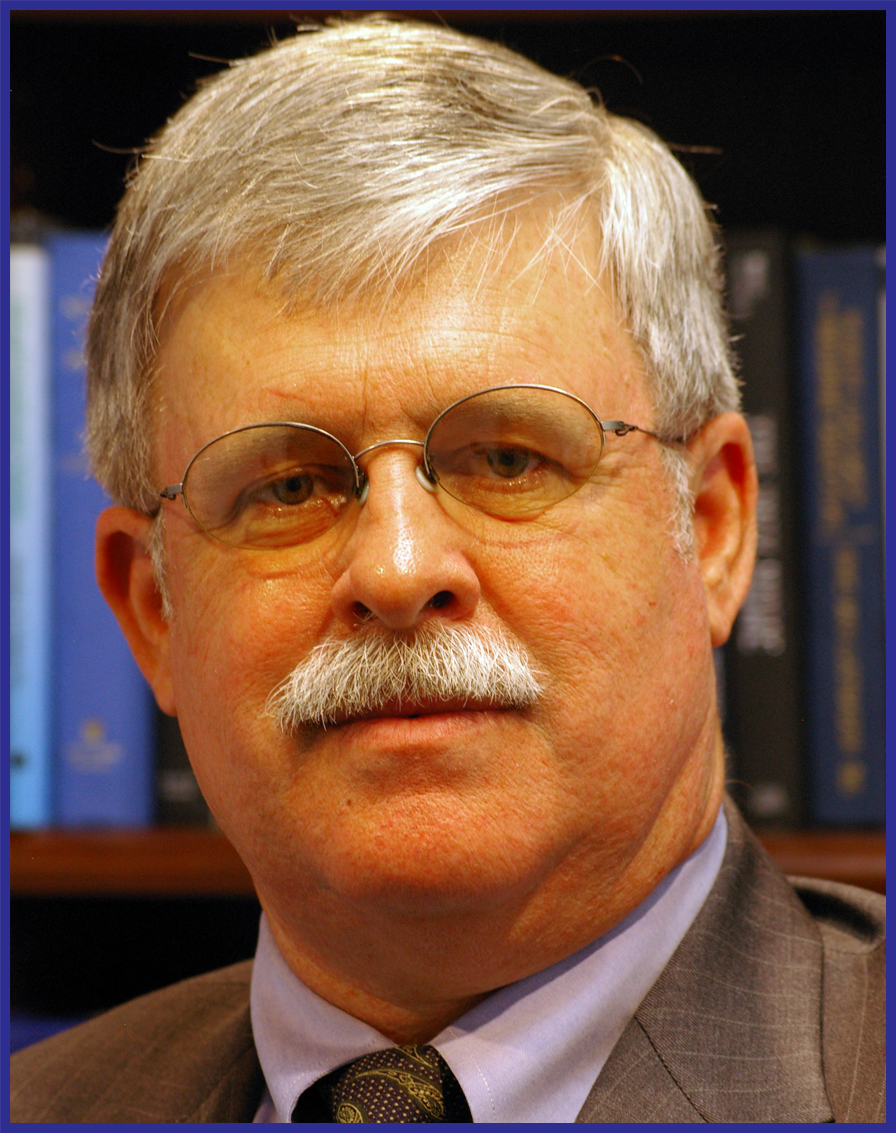 Donald A. Donahue, DHEd, MBA, MSJ, FACHE, FRSPH, Lieutenant Colonel, MS, U.S. Army (Ret.) is professor of healthcare administration and global health with University of Maryland Baltimore (UMB) and University of Maryland Global Campus (UMGC). Don’s experience spans the military, government, and private sectors and focuses on healthcare operations, medical readiness, emergency preparedness, and bioterrorism. His work has included development of a medical intelligence course for a state department of health, creation of multiple undergraduate and graduate courses in healthcare administration and global health, evaluation of Veterans Affairs behavioral health residential treatment facilities, providing expert testimony on the Health Insurance Portability and Accountability Act of 1996 (HIPAA), and increasing access to healthcare and enhanced resiliency for vulnerable populations.
Donald A. Donahue, DHEd, MBA, MSJ, FACHE, FRSPH, Lieutenant Colonel, MS, U.S. Army (Ret.) is professor of healthcare administration and global health with University of Maryland Baltimore (UMB) and University of Maryland Global Campus (UMGC). Don’s experience spans the military, government, and private sectors and focuses on healthcare operations, medical readiness, emergency preparedness, and bioterrorism. His work has included development of a medical intelligence course for a state department of health, creation of multiple undergraduate and graduate courses in healthcare administration and global health, evaluation of Veterans Affairs behavioral health residential treatment facilities, providing expert testimony on the Health Insurance Portability and Accountability Act of 1996 (HIPAA), and increasing access to healthcare and enhanced resiliency for vulnerable populations.
Dr. Donahue has a distinguished record of work in Public Health Emergency Preparedness and Response. His work has ranged from department-level leadership in some of the most medically needy neighborhoods in New York to national policy development to international initiatives to define and promote interdisciplinary disaster medicine and public health. (Then) Lieutenant Colonel Donahue was a primary planner for the Department of Defense anthrax, smallpox, and military vaccine programs, as well as for readiness and force health protection initiatives for the Reserve Components. Following the 2001 postal anthrax attacks, he was the principle instructor for the CDC Anthrax Vaccination Program, providing post exposure prophylaxis and treatment education to the Public Health Service response team and regional reference laboratories across the nation. His work has included designing, directing, and delivering education and training to military and civilian audiences in disaster preparedness and response, management of logistical support for the District of Columbia Strategic National Stockpile program, and analysis of legal sufficiency for non-pharmaceutical interventions (the CDC-ASTHO Social Distancing Law Project).
Dr. Donahue’s experience includes work in behavioral care, home health, lobbying and consulting, and hospital administration, including corporate consulting and departmental leadership in major urban medical centers. He is a fellow of the American College of Healthcare Executives, the Royal Society for Public Health, and the University of Pittsburgh Center for National Preparedness. Professor Donahue is a board member of the American Academy of Disaster Medicine, American Association of Physician Specialists Foundation, and World Association for Disaster and Emergency Medicine. He serves as vice president of the Society for Disaster Medicine and Public Health and editor-at-large for the Society’s journal, Disaster Medicine and Public Health Preparedness. Dr. Donahue is a Founding Director of the Commission Internationale de Médecine de Catastrophe/International Commission on Disaster Medicine.
He has served as a senior fellow and Program Director for Health Policy and Preparedness for the Potomac Institute for Policy Studies and Deputy Surgeon (Policy and Fiscal Administration) for the Army Reserve, where he was responsible for strategic planning, program development, and funding for medical operations, medical and dental readiness, health policy, medical aspects of homeland security, and bioterrorism issues. Donahue received the 2014 American College of Healthcare Executives Regent for the District of Columbia and Northern Virginia Senior-Level Healthcare Executive Award. Recognition for programs established by Dr. Donahue include the Vice President’s (Hammer) Award for Reinventing Government, the Department of Veterans Affairs Award for Contracting Excellence, and being named to Fast Company magazine’s “Fast 50” recognizing innovators, entrepreneurs, and change agents. Other positions held by Dr. Donahue include managing partner for Diogenec Group, Senior Marketing Manager for Magellan Health Services, consultant and lobbyist for Jefferson Consulting Group, and emergency department administrator and corporate consultant for New York City Health and Hospitals Corporation.
Don serves on the speaker selection committee for the American Institute of Architects’ Academy of Architecture for Health and the American College of Healthcare Architects Summer Leadership Summit and with the medical theatre working group for the 2020 World Humanitarian Forum. He is a past Board Chair for Melwood, an $90 million p.a. nonprofit serving people with intellectual and developmental disabilities and the nation’s fourth largest AbilityOne program. Other professional activities include services as a peer reviewer for the Health Resources and Services Administration (HRSA).
Professor Donahue’s educational credentials include a Doctor of Health Education from A.T. Still University, Master of Business Administration from Baruch College, Master of Jurisprudence (Health Law) from Seton Hall University, Bachelor of Science (Sociology and Political Science) from the University of the State of New York, and a graduate of the United States Army Command and General Staff College.
 Lt. Gen. Timothy G. Fay, USAF (Ret) is a Senior Fellow and Member of the Board of Regents. Lt. Gen. Fay retired in September 2021 from his post as Director of Staff, Headquarters Air Force, the Pentagon. In this role, he prioritized, synchronized, and integrated efforts of the 4,300-person Department of the Air Force headquarters while delivering direct support to the Secretary of the Air Force and the Chiefs of the Air and Space Force for the organization, training, and equipping of 690,000 personnel and a $169B enterprise budget.
Lt. Gen. Timothy G. Fay, USAF (Ret) is a Senior Fellow and Member of the Board of Regents. Lt. Gen. Fay retired in September 2021 from his post as Director of Staff, Headquarters Air Force, the Pentagon. In this role, he prioritized, synchronized, and integrated efforts of the 4,300-person Department of the Air Force headquarters while delivering direct support to the Secretary of the Air Force and the Chiefs of the Air and Space Force for the organization, training, and equipping of 690,000 personnel and a $169B enterprise budget.
Lt. Gen. Fay was commissioned following his graduation from the U.S. Air Force Academy in 1987. His assignments included instructor pilot and weapons officer duties in the B-52 Stratofortress and B-2 Spirit, and staff service at Headquarters, U.S. Strategic Command, U.S. Forces Iraq, the Joint Staff and the Air Staff. He served in operations Desert Storm, Allied Force and Iraqi Freedom; commanded at the squadron, group and wing level; and is a command pilot with more than 3,900 flight hours. In his previous assignment, he served as the Deputy Chief of Staff for Strategy, Integration and Requirements (A5), Headquarters U.S. Air Force, the Pentagon.
Lt. Gen. Fay is a distinguished graduate of the Air Force Academy, Air Command and Staff College, and the National War College. In addition, he is an outstanding graduate of the USAF Weapons School. He also holds a Master’s degree in International Relations from the University of Belgrano in Buenos Aires where he was an Olmsted Scholar.
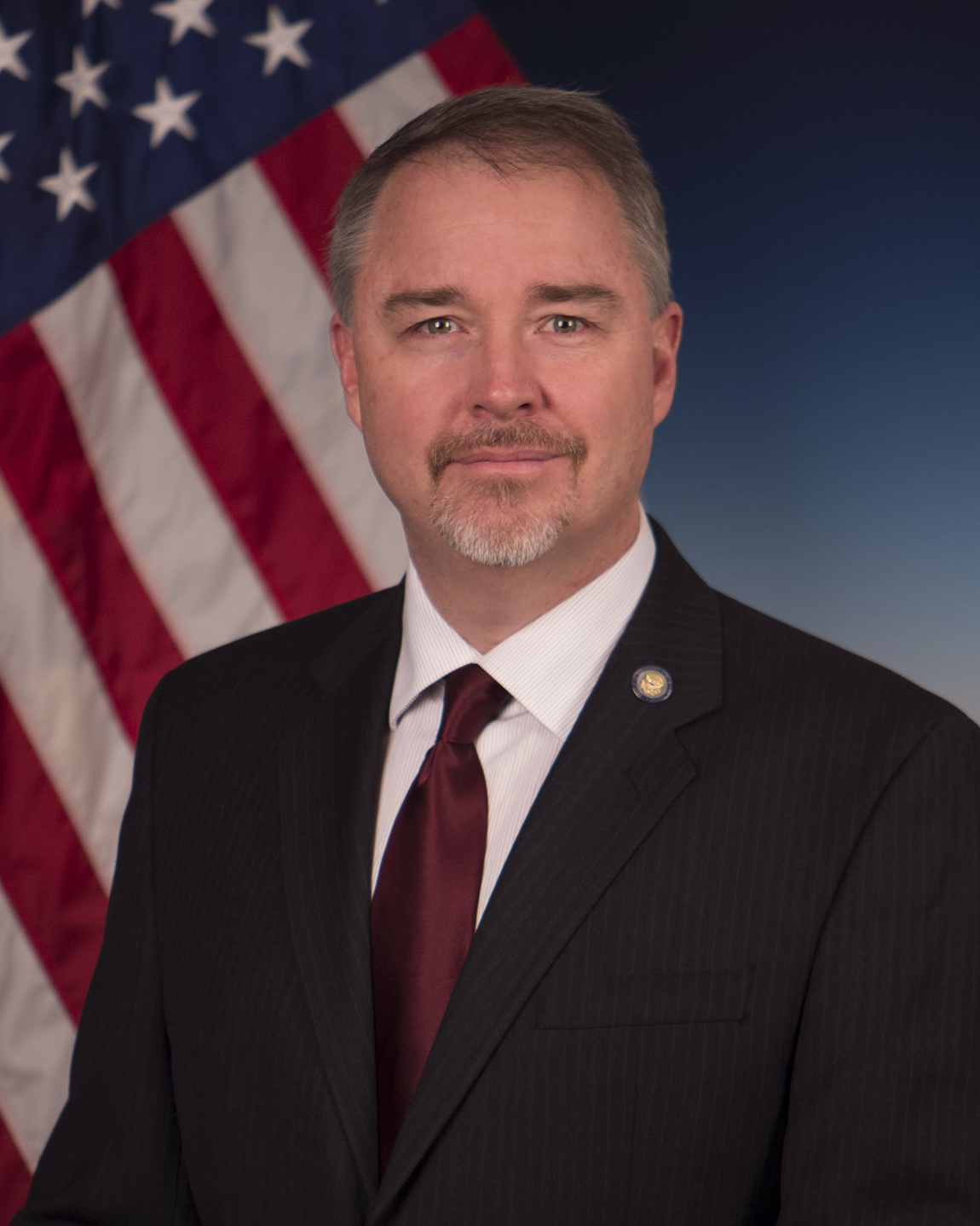
From 2017 until he became the SDA Director, Dr. Kennedy was the Director of the Tactical Technology Office (TTO) of the Defense Advanced Research Projects Agency (DARPA). Prior to joining DARPA, he served as the senior policy advisor for national security space and aviation in the National Security and International Affairs Division of the White House Office of Science and Technology Policy (OSTP). In this role, Dr. Kennedy advised the President of the United States on matters related to space and aviation policy.
Dr. Kennedy served 23 years in the United States Air Force, where he retired as a colonel. During his tenure, he served as a Senior Materiel Leader in both the Air Force’s Space and Missile Systems Center’s Remote Sensing Directorate and the Air Force Lifecycle Management Center’s Battle Management Directorate. Prior to that, he was the lead for Space Requirements with the Joint Staff/J- 8 in the Capabilities and Acquisition Division at the Pentagon and a chief for Spacecraft Payload Development and Test and Satellite Systems and Acquisition at the National Reconnaissance Office. From 2005 to 2008, while in the Air Force, Dr. Kennedy was a program manager in TTO, where he created and managed efforts around spacecraft and satellite servicing, advanced space power and propulsion systems, and innovative space technologies.
Dr. Kennedy holds a Ph.D. in electronics and physical sciences from the University of Surrey; a Master of Arts in organizational management from George Washington University; a Master of Arts in strategic studies from the U.S. Army War College; and a Master of Science and Bachelor of Science, both in aeronautics and astronautics, from the Massachusetts Institute of Technology.
 John Wilson is a tech entrepreneur and investor with broad experience across climate tech and innovation structures. For eight years he helped speed US development of electric-drive systems as founding director of a DARPA-funded consortium on transportation advances now known as the Center for Transportation and the Environment. He was CEO of the eMotion Mobility venture with American Le Mans owner Donald Panoz and Daimler that developed an electric Smart car for car-sharing. And he advises Johnson Energy Storage, which aims to commercialize advanced lithium battery technologies invented by former Air Force/NASA rocket scientist Lonnie Johnson.
John Wilson is a tech entrepreneur and investor with broad experience across climate tech and innovation structures. For eight years he helped speed US development of electric-drive systems as founding director of a DARPA-funded consortium on transportation advances now known as the Center for Transportation and the Environment. He was CEO of the eMotion Mobility venture with American Le Mans owner Donald Panoz and Daimler that developed an electric Smart car for car-sharing. And he advises Johnson Energy Storage, which aims to commercialize advanced lithium battery technologies invented by former Air Force/NASA rocket scientist Lonnie Johnson.
Early in his career he worked for two members of Congress developing incentives for renewable energy. He then helped expand them as Legislative Coordinator with the Solar Lobby and as founder of the Renewable Energy Institute. Wilson also co-chaired a staff group between Congress and the White House to speed the government’s digital transition of legislative and regulatory information. He later founded a Washington office for the Southern Legislative Conference and Southern Governors Association, which he headed for three years.
In 2012 he became a venture partner with Paladin Capital Group, a leading global investor in innovative cyber companies. For four years he was Board Advisor and then Chief Strategy Officer to a publicly traded SaaS delivery management firm. He also cofounded digital display firm NanoLumens and was founding Chairman of social media ratings firm Share Rocket.
In 2011, he helped launch GigTank, a global accelerator for startups on Chattanooga’s Gigabit-fiber network. For over a decade he has co-chaired the Technology Association of Georgia’s Top-40 innovative firm competition and has served as an investor, mentor or judge with Techstars, Georgia Tech’s Flashpoint, NeuroLaunch and CyberLaunch accelerators, Emory University’s Excellerator and Valor Venture’s Startup Runway. He earned his BA in Chemistry from Emory University.
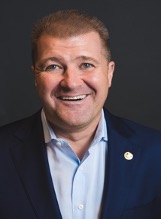 Mr. Hibbeln is our newest fellow at the Potomac Institute for Policy Studies. He is also a Venture Partner at Sinewave Ventures. Prior to this he served over 20 years as a senior civilian in the US Government. His final assignment was the Director of the Remote Sensing Center – National Capital Region where he managed over $8B in US Government contracts. The RSC-NCR supported the DoD and US Intelligence Community with technology demonstrations and operational support to combatant commanders around the world. Mr. Hibbeln also retired as an Air Force Reserve Officer with over 23 years of service. His final assignment was to the Mission Support Directorate of the National Reconnaissance Office (NRO).
Mr. Hibbeln is our newest fellow at the Potomac Institute for Policy Studies. He is also a Venture Partner at Sinewave Ventures. Prior to this he served over 20 years as a senior civilian in the US Government. His final assignment was the Director of the Remote Sensing Center – National Capital Region where he managed over $8B in US Government contracts. The RSC-NCR supported the DoD and US Intelligence Community with technology demonstrations and operational support to combatant commanders around the world. Mr. Hibbeln also retired as an Air Force Reserve Officer with over 23 years of service. His final assignment was to the Mission Support Directorate of the National Reconnaissance Office (NRO).
Mr. Hibbeln previously served as the Assistant Deputy Undersecretary of Defense for Special Capabilities, in the Office of the Secretary of Defense (OSD). He managed over $2B in resources as the Director of the OSD - Special Capabilities Office (SCO). He was responsible for the oversight of Joint Capability Technology Demonstrations (JCTD’s) related to intelligence, space, airborne, and other remote sensing operations. He also oversaw the development of special technologies in support of the Combatant Commands, the Joint Staff, the Intelligence Community, and forward deployed operational users.
Mr. Hibbeln also served as the Chief Scientist and Chief Systems Engineer of the Measurement and Signatures Intelligence (MASINT) Staff at the NRO. He was responsible for the development of new overhead sources and methods to address hard intelligence problems and led the development of advanced space-based MASINT architectures. In this position, he provided recommendations to the Director of Central Intelligence, Congressional Staffs, senior policy and decision makers, and numerous operational and intelligence customers. Many of these programs transitioned to operational programs of record that continue to provide significant support to ongoing operations.
Before embarking on his government civilian career in 2000, Mr. Hibbeln served as an active duty Air Force Officer with assignments at both the National Air and Space Intelligence Center (NASIC) and the NRO. Upon release from active duty, he was awarded the Joint Meritorious Service Medal, a certificate of achievement from the Director of the CIA, and the NRO Silver Medal. In 2001, he was recalled to active duty to serve in OPERATION ENDURING FREEDOM. During this tour of duty, he led a number of new initiatives utilizing National, Civil, and Commercial space systems to combat terrorism and provide operational support to forces and the Intelligence Community. During this time, he also supported the White House Military Office as White House Social Aide to the President.
Mr. Hibbeln graduated from the United States Air Force Academy with a Bachelors of Physics in 1991. At the Academy, he was named the outstanding cadet in Physics Research for his work in spacecraft vehicle charging. He was also named the outstanding student in Survival, Escape, Resistance, and Evasion training. He earned a Masters of Physics in 1992 from the Air Force Institute of Technology. At AFIT he received an Air Force Invention Award and a U.S. patent for his work in pulsed power semiconductor switches.
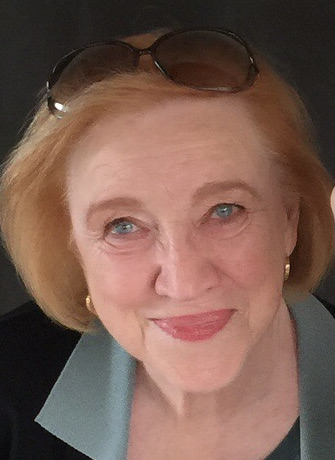 Jody Moxham is a strategic communication expert with a career focused on helping multinational corporations and government organizations measurably strengthen the persuasiveness of their global marketing strategies and communications.
Jody Moxham is a strategic communication expert with a career focused on helping multinational corporations and government organizations measurably strengthen the persuasiveness of their global marketing strategies and communications.
She spearheaded the development of a methodology that accurately forecasted how an audience would respond to a communication, while it was still just an idea on paper. The ability to forecast audience response before a message was produced and shown to consumers was a revolutionary breakthrough for the marketing world. PhaseOne communications was founded to market the unique methodology. Jody and her team were soon asked to get involved at an even earlier stage to help improve communication strategies. As a result, Jody had unparalleled insights into how the best marketers in the world developed their communication strategies.
Clients that Jody and her team served included General Motors Corporation, Nestle Global, Coca Cola, Exxon Mobil, Campbell Soup Company, General Mills, etc.
One month after 9/11, Jody received a phone call from the Intelligence Community asking if PhaseOne would be willing to see if the methodology that had worked so successfully in the private sector could work for national security interests.
While PhaseOne continued serving its corporate clients, Jody dedicated a select team of analysts to work with her on national security projects. PhaseOne contracts spread across the IC and the DOD. Individual projects were classified but, overall, the work involved understanding target audiences, strategies for easing tensions, understanding motivations of adversaries, etc.
In 2012 PhaseOne sold the company and in 2015 Jody left the company.
During the latter half of the Bush Administration, Jody was instrumental in founding the U.S. Marketing Communications College to help train USG personnel in private sector communication basics. The College was installed at the Foreign Service Institute during the Obama Administration.
She is currently a contributing faculty member for the Senior Joint Information Operations Applications Course (SJIOAC), a Senior Fellow at Potomac Institute for Policy Studies, a Senior Advisor to Parenthetic a strategic communications company, and continues to advise and teach within the U.S. Government community.
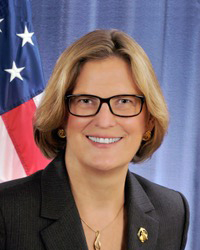 Dr. Kathryn Sullivan has a long career as a distinguished scientist, astronaut and executive. She was one of the first six women to join the NASA astronaut corps in 1978 and holds the distinction of being the first American woman to walk in space. She flew on three space shuttle missions during her 15-year NASA tenure, including the mission that deployed the Hubble Space Telescope.
Dr. Kathryn Sullivan has a long career as a distinguished scientist, astronaut and executive. She was one of the first six women to join the NASA astronaut corps in 1978 and holds the distinction of being the first American woman to walk in space. She flew on three space shuttle missions during her 15-year NASA tenure, including the mission that deployed the Hubble Space Telescope.
Since leaving NASA, Sullivan has held a variety of senior executive positions, including Presidential appointments to the National Science Board and as Chief Scientist, Deputy Administrator and Undersecretary/Administrator of the National Oceanic and Atmospheric Administration. As President and CEO of Ohio’s Center of Science & Industry (COSI) from 1996-2006, she oversaw the construction of a state-of-the-art new facility and comprehensive re-design of the museum’s hands-on science exhibits and educational programs. Recruited to The Ohio State University in 2006, she was the inaugural director of the Battelle Center for Science and Technology Policy within the John Glenn School (now College) of Public Affairs. An experienced corporate director, she currently serves on the board of the International Paper Company.
Sullivan holds a Bachelor of Science degree in Earth Sciences from University of California at Santa Cruz and a Ph.D. in Geology from Dalhousie University, Nova Scotia. She is a member of the National Academy of Engineering, the American Academy of Arts and Sciences and numerous other professional associations. Her many honors and awards include selection as one of the World Economic Forum’s 15 Women Changing the World in 2015 and Time Magazine’s 100 Most Influential People (2014), the Explorers Club Medal, an Emmy, nine honorary degrees and election to the Astronaut Hall of Fame, Women Aviators Hall of Fame, Women Divers Hall of Fame and Ohio Veterans Hall of Fame.
An acclaimed public speaker, Dr. Sullivan has given invited talks on technical and popular topics to audiences ranging from the World Economic Forum, Aspen Ideas Festival and Fortune 500 executives to universities, civic associations and cruise ship audiences.

